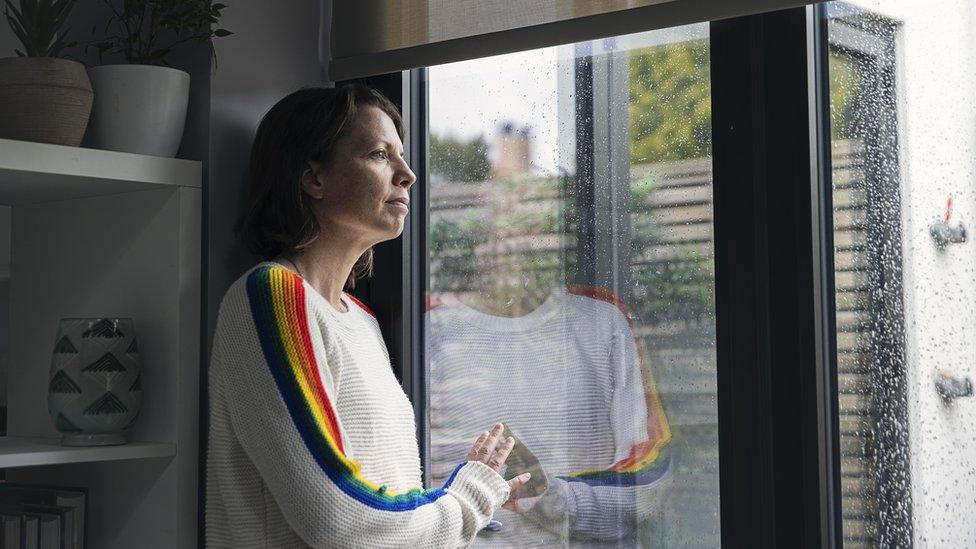Mum tells how benefit deductions leave her struggling to feed daughter
- Published
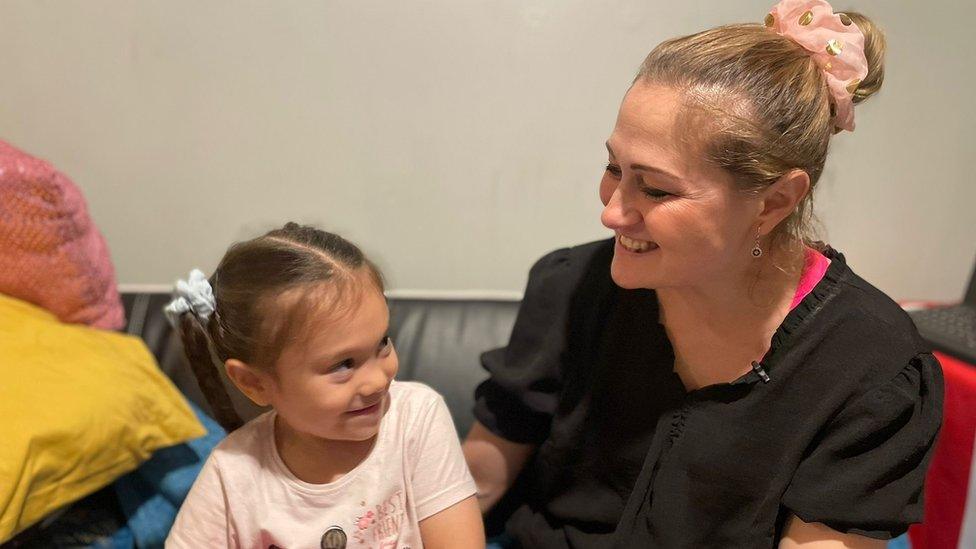
Elizabeta says she faces a £40 monthly reduction in benefit payments and struggles to feed her daughter without a food bank's assistance
A Leeds mother who has her monthly benefits reduced through government deductions has said she is struggling to feed her daughter.
Elizabeta Lazar said she could not afford to properly furnish or light her home and faced a £40 monthly deduction due to a previous overpayment.
A Trussell Trust survey suggested nearly half of those referred to its food banks had experienced deductions.
The government said it had twice cut the amount which could be deducted.
It added: "We recognise people are struggling with rising prices which why we are protecting millions of the most vulnerable families with at least £1,200 of support."
The Trussell Trust said almost half of survey respondents reported deductions from their benefits to recover overpayments, sanctions or arrears, with the amounts deducted from monthly payments before they arrived in the recipient's account.
MPs on the parliamentary Work and Pensions Select Committee said this practice needed to be paused during the cost of living crisis, as it was during the pandemic.
Ms Lazar said her struggles to put food on the table each day mades her feel like a "bad mum".
"It's a bit embarrassing, because of the deductions I can't afford to feed my daughter," she said.
"She needs her five a day, vitamins fruit and veggies and I can't offer her that."
She added: "A week before [the payment] I've got absolutely no money or food so I have to go to organisations like food banks, Citizens Advice Bureau..."

The survey, carried out by Ipsos on behalf of The Trussell Trust between April and July, involved 2,364 adults and 99 food banks across the UK.
It suggested:
Nearly half (47%) of those surveyed over a four-month period faced benefit deductions to their or their partner's benefits
Almost a third (31%) saw deductions due to a government loan to bridge the gap before Universal Credit was first paid
One in five people (22%) facing deductions were doing so because they needed to repay a benefit overpayment

After losing his job, Azad Khan said he had to take out a Department for Work and Pensions loan during a three-month spell without benefits and now faced Universal Credit deductions.
Mr Khan, from Bradford, said: "It's like you're stuck in between four walls and you've got no money, you've got no food.
"You've just about got a bed to sleep in."
Mr Khan said he had been forced to use a food bank for the first time, with Bradford Central food bank helping him with essentials.
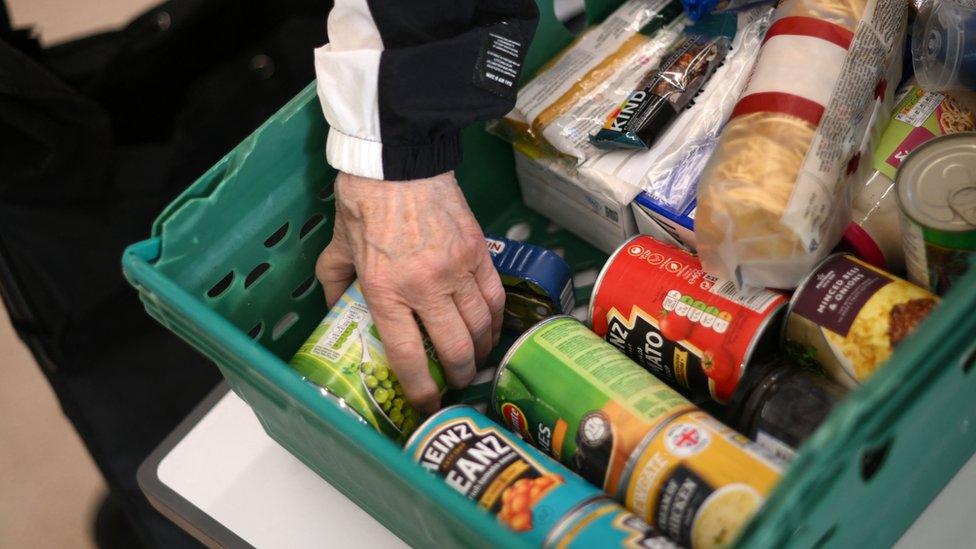
The research, given exclusively to the BBC, is based on surveys of people referred to Trussell Trust food banks over a four-month period in 2022
When challenged about why he entered a loan agreement he knew he would have to repay, he replied: "How do you expect me to survive?"
Josie Barlow, from the food bank, said: "I just think that the advance payment loan shouldn't really be there in the first place.
"I don't think we should be setting people up to fail."
She added: "We say you can have a benefit, but we're not paying you anything for six weeks, and in the meantime you can have a loan you can pay back 12 months later."
In July, the Work and Pensions Committee of MPs said the repayments, taken from more than 2 million claimants, were pushing the most vulnerable into destitution.
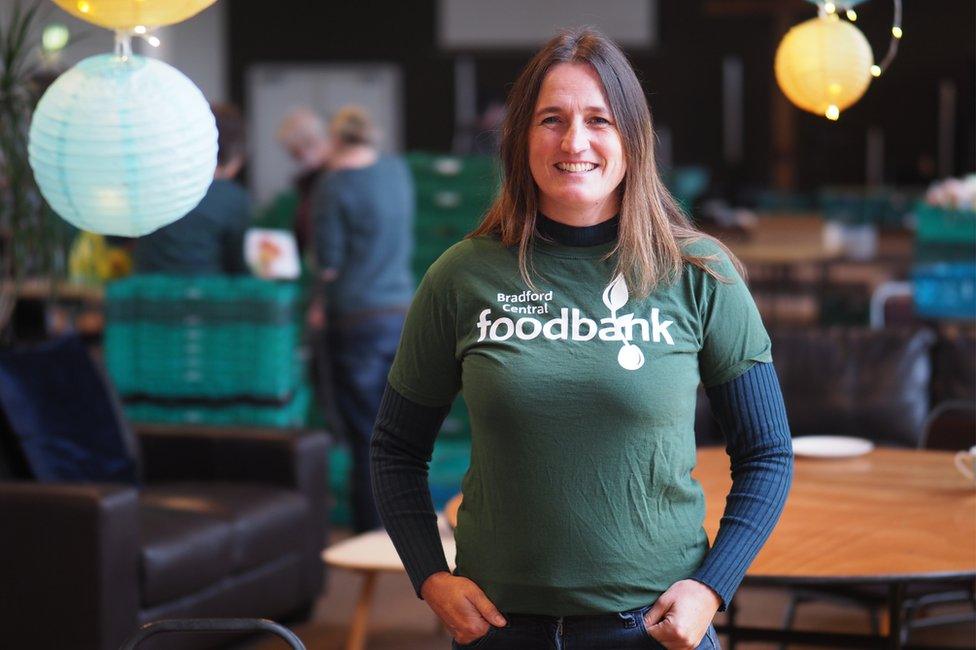
Josie Barlow, of the Bradford Central food bank, says new people are coming through its doors due to the impact of benefit deductions
Sir Stephen Timms, Labour MP for East Ham and committee chair, said: "We think the problems are sufficiently acute now that they should be suspended again, it's clearly not working.
"There was a university research report which made the point that the social security system is acting not so much as a safety net but more as a debt collector at the moment."
In a statement, a Department for Work and Pensions (DWP) spokesperson said: "We have reduced the maximum amount that can be deducted from a Universal Credit award twice in recent years.
"We've also doubled the time period over which they can be repaid and claimants can contact DWP to discuss deductions if they are experiencing financial hardship."

Follow BBC Yorkshire on Facebook, external, Twitter, external and Instagram, external. Send your story ideas to yorkslincs.news@bbc.co.uk, external.
Related topics
- Published29 November 2022
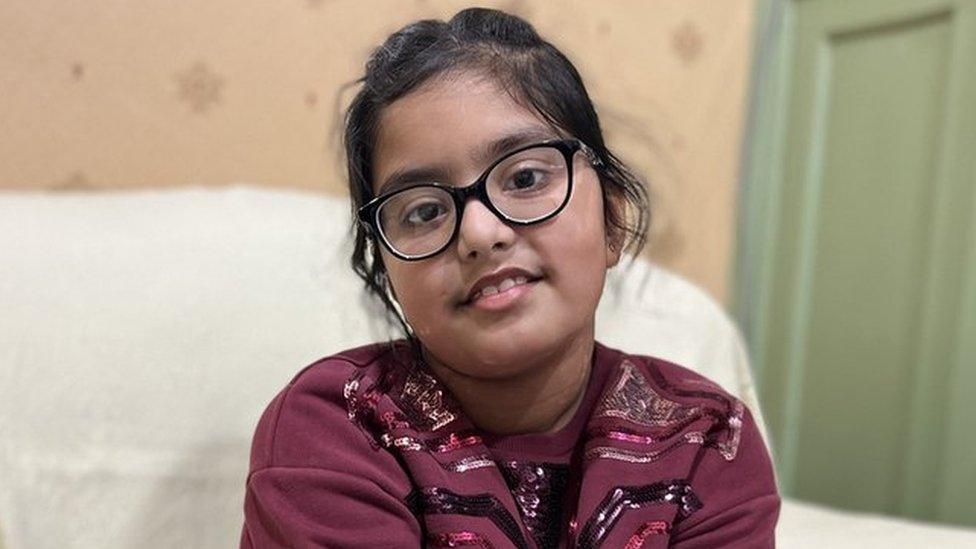
- Published27 July 2022
